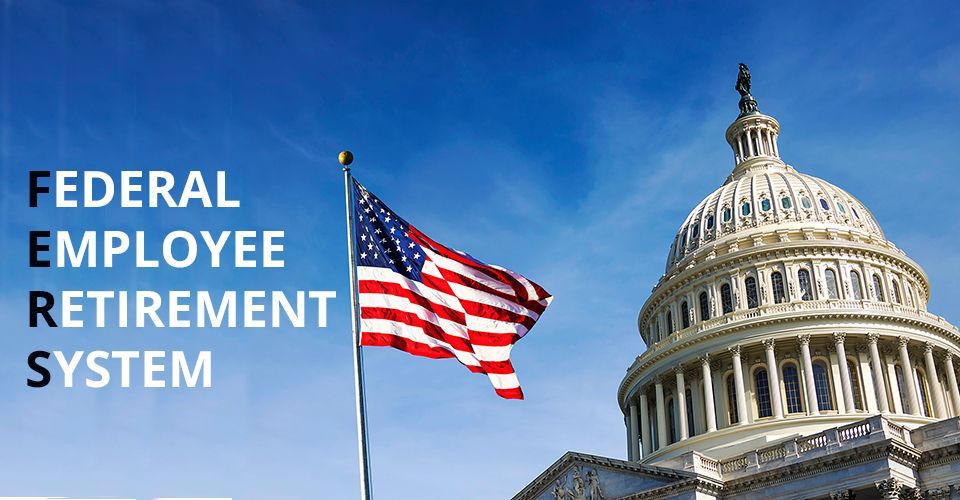Avoid These 10 Federal Employee Retirement Planning Mistakes

Retirement planning is a complex and crucial endeavor for everyone, and it's even more intricate for federal employees who need to navigate the unique retirement systems in place. The Federal Employees Retirement System (FERS), Thrift Savings Plan (TSP), Federal Employees' Group Life Insurance (FEGLI), and Social Security are all essential components of retirement planning for federal employees. However, many individuals make common mistakes that can impact their retirement security. In this blog, we'll explore the top retirement planning mistakes federal employees often make and provide guidance on how to avoid them.
The Top 10 Federal Retirement Mistakes
- Neglecting TSP Contributions
The Thrift Savings Plan is a cornerstone of retirement savings for federal employees. Many make the mistake of not maximizing their TSP contributions. To ensure a comfortable retirement, you should contribute enough to take full advantage of your agency's matching contributions. Starting early and gradually increasing your contributions can significantly boost your savings over time. - Failing to Diversify Your TSP Portfolio
Another prevalent mistake federal employees make is having an imbalanced asset allocation in their TSP account. Diversifying your investments is crucial to managing risk effectively. Consider your risk tolerance and time horizon when deciding how to allocate your assets. A well-diversified portfolio can help protect your savings from market fluctuations. Keep in mind the close you are to retirement, you may need to dial the risk. - Misunderstanding FEGLI
Federal Employees' Group Life Insurance (FEGLI) is an excellent benefit, but many federal employees misunderstand their coverage needs. It's vital to assess your life insurance requirements and consider purchasing private insurance when necessary. Relying solely on FEGLI for your coverage may not be sufficient to protect your family adequately. These premiums do increase with age and may become unaffordable for people up to 5 times their salary. Oftentimes people release coverage when this happens, but it puts them in a bind - either you can’t qualify for new coverage due to a recent diagnosis or you may go without coverage. Federal employees need to plan ahead for all possible contingencies so you are prepared. - Overlooking the Survivor Benefit Plan (SBP)
The Survivor Benefit Plan (SBP) is often overlooked but can be a critical aspect of retirement planning for federal employees. It allows your spouse or dependent to receive a portion of your annuity after your passing. While it may come with a cost (5 to 10% of your monthly pension), it's essential to carefully evaluate the benefits and healthcare coverage needs for your spouse. - Failing to Optimize Social Security
Social Security is a significant part of retirement income for many Americans, and federal employees are no exception. However, failing to optimize Social Security benefits, and Social Security spousal benefits can be a costly mistake. Deciding when to claim benefits and factoring this into your overall retirement strategy is crucial. Delaying benefits can lead to higher monthly payouts, and it's worth considering this option. - Not Having a Comprehensive Retirement Plan
A comprehensive retirement plan that integrates all the components effectively is vital. Many federal employees make the mistake of not having such a plan. Working with a retirement coach who specializes in federal retirement benefits can help you create a customized plan that addresses your specific needs and goals. - Underestimating Healthcare Costs
Healthcare costs in retirement can be substantial. Many federal retirees underestimate these costs. It’s important to project increased healthcare (FEHB) cost and enrollment into Medicare Part B in order to ensure affordable healthcare coverage into later years. At some point, you may need to drop FEHB if premiums become too expensive. Fortunately, you will still have Medicare Part A and B health coverage. While Medicare provides important coverage, it doesn't cover everything. Consider purchasing additional insurance, such as Medigap, to protect your finances from unexpected medical expenses. - Neglecting Tax Considerations
Taxes can significantly impact your retirement income. Many federal employees disregard tax considerations in their retirement planning. Exploring strategies to minimize your tax liability, such as Roth conversions or utilizing tax-advantaged accounts like the TSP, can be beneficial depending upon your proximity to retirement. Tax-efficient planning can help you keep more of your hard-earned money in retirement. - Ignoring Inflation
Inflation is a silent but powerful force that erodes the purchasing power of your money over time. It's a mistake to ignore inflation in your retirement planning. Regularly adjust your financial plan to accommodate the rising cost of living, ensuring that your savings will last throughout your retirement. - Procrastinating Retirement Planning
One of the most significant mistakes is procrastinating retirement planning. The sooner you start planning for retirement, the better off you'll be. Time is your greatest asset when it comes to building wealth and securing your retirement. If you haven't already, start today.
Retirement planning for federal employees involves many complex systems. By avoiding these common mistakes and being proactive in your planning, you can create a solid financial foundation for your retirement years. Seek professional guidance when needed and stay informed about your options to make the most of your federal benefits. Your retirement security is too important to leave to chance.
Remember, it's never too early to start planning, and it's never too late to make necessary corrections. With careful consideration and a well-thought-out retirement plan, federal employees can enjoy a secure and fulfilling retirement.
Secure Your Financial Future with a Retirement Coach
If you'd like personalized guidance or have specific questions about your retirement planning as a federal employee, don't hesitate to reach out to a financial advisor at Federal Retirement Experts. We specialize in federal retirement planning and can provide the expertise and support you need to make informed decisions.
Start planning today, and your future self will thank you for it.
Federal Employees 55 and Over Can Get Complimentary Analysis
Federal Retirement Experts is offering a
complimentary pre-retirement analysis to federal employees 55 and older. This pre-retirement analysis is your personal report that helps explain your federal benefits and how they’ll work in retirement. It even provides a personalized projected retirement income. To request your no obligation analysis, complete the
Federal Employee Benefits Analysis form.
More Featured Articles









